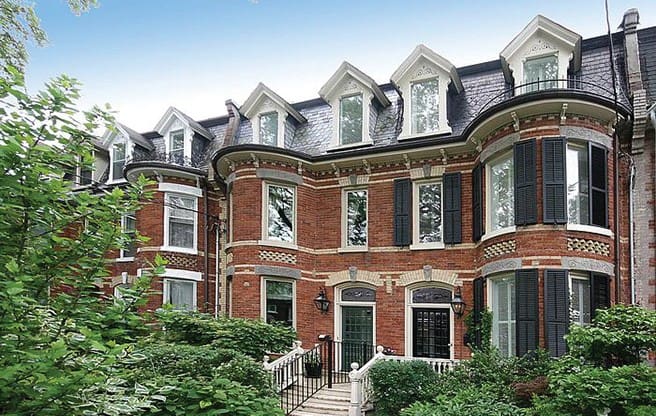By Nick Humphries of Nick and Hilary.
-
Affordability. How many dollars can you spend? Do you have a bare minimum of 5% for a downpayment? Don’t forget about land transfer taxes and closing costs. Figure this out first. Talk to your bank and talk to a mortgage broker. They often approve for a higher amount than you’d think. Work backwards and figure out your monthly carrying costs, then make sure you are comfortable with the payments. Factor in utility bills, potential condo fees, maintenance expenses, insurance etc. Consider what will happen if interest rates increase when your mortgage is up for renewal. Determine a budget that you are confident in and comfortable with.
-
Location. Or as they say, location, location, location. Figure out your priorities, whether it’s walkability, access to transit, greenspace, awesome restaurants or a good school district. Then scope out the neighbourhoods that match your priorities. Go for brunch, do a mock commute to work, check out the shops and check out some open houses. Get a handle on prices and determine which neighborhoods are realistic for your budget – prices range considerably. We can suggest neighbourhoods that you might not be currently considering, we’re good like that. Be open to different areas, no one puts baby in a corner.
-
Pick a real estate agent to help you with all of the things. Preferably one you don’t want to stab. Tips for finding the perfect match here (nickandhilary.com/how-to-pick-a-real-estate-agent-in-toronto).
-
Condo vs. Freehold. Both have pros and cons. Maybe consider a condo townhouse – more space than a typical condo tower unit, typically much lower condo fees and at a lower price point than a freehold property. More on this here (nickandhilary.com/pros-and-cons-of-buying-a-condo).
-
See all of the things! Seriously though, see a lot of properties in the areas that you are interested in. Nothing will give you a better handle on market conditions than getting out there and seeing for yourself. Keep track of what properties you’ve seen end up selling for, soon you will have a good understanding of value in the areas you are considering. We always provide our clients with this info. Knowledge is power (hehe, I felt silly writing that).
-
Are you good at fixing stuff? Do you have lots of personal contacts (plumber, contractor, electrician) to use and abuse? Do you have money to pay someone else to fix stuff? It’s great to say you’d like a fixer upper in a nice hood – but first make sure you have an idea how to fix ‘er up and know how much money that’s going to cost. Large scale do-it-yourself renovations sound romantic in theory – until you are on month 4 of not having a kitchen or working bathroom. Have a good handle of what you and your peeps are capable of, otherwise consider bringing in a contractor and getting a quote prior to pulling the trigger on that diamond in the rough.
-
How much space do I need? Think about this on a 5 year horizon, which is the minimum timeframe we’d recommend owning prior to selling to minimize risks and hopefully make some dough in the process. Disregard if you are buying something that you want to live in for a period and then rent out (then good for you, you builder of empires you).
-
Get all of your ducks in a row early. Real Estate Lawyer, Mortgage Broker, Insurance Agent, Bank of Mom and Dad, RRSP contribution potential and Real Estate Agent. These are some of your ducks, arrange them accordingly.
Want to talk about it? Get in touch with us. We’re not overly pushy and love working with first time home buyers.
Nicholas Humphries 416-526-2791, [email protected]
Hilary Browning 416-735-4665, [email protected]
Overview
Subscribe to begin.
Join 7.5k+ subscribers and get tips, strategies and market updates every other Thursday morning.







